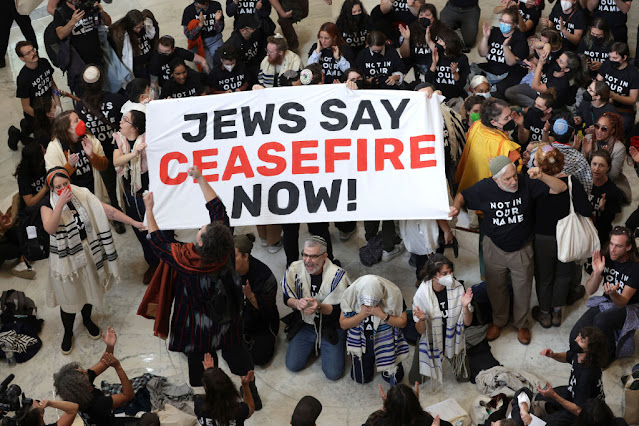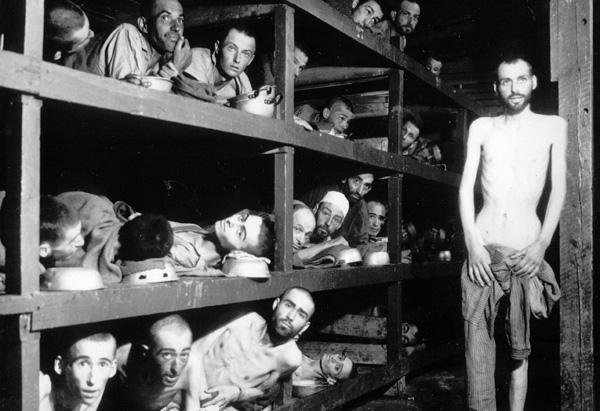Cheyenne in the Blizzard of 1949. It was a worse storm than the one in '56, but ours seemed epic enough.
Note—Here in our pocket of the Greater Chicago Area Northwest Boonies we are just getting out of an extended bitter cold snap but so far our Winter has been bereft of snow. But from Texas to Florida the Deep South is still trying to dig out of epic blizzards. These weren’t the end-of-the-newscast light hearted “snowflakes fall at Disney World” kind of thing, they were the real deal matching the fierce winter storms we have had over the years in these parts. A foot of snow fell on New Orleans and along the Florida/Georgia line. Children down there will have vivid memories and the tale of the Blizzard of ’25 will be told and retold for decades. In that spirit, here are my own memories of a big snow in Cheyenne, Wyoming almost 60 years ago.
It was one of those storms that dive down from Canada along the Front Range of the Rockies and run smack into moist air up from the Gulf, howling winds driving horizontal snow, obliterating the world in stinging whiteness before drifting east over the limitless flatness of Nebraska. It was a memorable blizzard, but we were safe and warm, even cozy in the old house on Bent Avenue just blocks away from the Capitol building.
The radio, my mother’s constant companion, said the city would be snowed in for two or three days. Of course, schools were closed. The state government sent its workers home, downtown was deserted, the grocery stores locked, the weight of the snow tearing their canvas awnings from their walls. The pass over Sherman Hill to the west was buried and blowing snow on Highway 30 across Nebraska would close in behind the plows for days. The mainline of the Union Pacific, of course, stayed open behind the giant plows harnessed to the most powerful steam locomotives ever built, but little good it did for local deliveries because the switching and humping yards were smothered and the switches frozen.
My mother was most concerned about our food supplies. As a child of rural poverty and the scarred veteran of the Depression, she feared hunger with a consuming dread. She always kept the pantry shelves groaning with canned goods as a hedge against any catastrophe. There were netted bushel bags of potatoes and plenty of sacks of flour and sugar, cans of coffee, huge boxes of powdered milk. We might run out of meat—most of the winter’s side of beef was cut up and wrapped in white paper, our name written neatly in grease pencil, in the city’s central locker. The milkman might fail to make his rounds and mom might not be able to drive out to the little farmstead on Crow Creek for her weekly eggs. Less farsighted neighbors, panicked by the storm, might strip the little neighborhood grocery stores before the snows closed the streets. But we would not starve.
Mom was most concerned with bread. There would be no soft white Rainbo Bread or the dry, scratchy whole wheat that my Dad liked toasted with his breakfast. So out came the big milk white mixing bowl and Mom’s sturdiest wooden spoon and the glass loaf pans greased with butter and floured. She was going to bake us enough bread for the duration. Soon the whole house was filled with the rich and unforgettable smell of bread baking, an aroma so compelling that ever after at the merest skiff of snow would bring my brother and I rushing to our mother asking, “Is it time for the bread yet?”
Our old house at 2805 Bent Avenue seems little changed but somehow smaller than I remember.
The loaves were not perfect. Mom did not bake often enough to for that. Perhaps there was too much yeast, but they had risen too quickly with too much air. A large bubble separated the top crust from the rest of the loaves, large enough for a child to stick his hand through. But it did not matter. Dad sliced the first loaf with our sharpest knife as soon as it was cool enough not to simply tear. Still, it was warm enough to give off visible rays of heat and to melt the thick pats of butter we smeared on each slice. We ate the whole loaf in one sitting like animals, as if it was the last food in the world. The rest of the loaves were carefully wrapped in wax paper and would be strictly rationed for the duration of the emergency.
Two days after the incessant wind stopped driving the snow into heaps and piles, the city streets were open. Dad in his red and black checkered hunting coat and seldom seen ear-flap cap and the other men on the block shoveled out the garages and cleared the alley to the street with heavy short handled coal shuttle shovels. The city slowly came awake. School reopened.
Mom prepared my brother Tim and I for school as she would on any winter morning. She built us in careful layers. First there were our usual shorts then cotton long handle underwear. Then came the long sleeved, broad striped polo shirts tucked into the first of two layers of corduroy pants. Mom washed the pants every night in the wringer washing machine then mounted them on metal stretchers to dry over the big heating grate in the floor of the dining room. The pants were still warm from the blast of coal fired air when we pulled them on. Then she attached our elastic suspenders. The suspenders were sources of great embarrassment to my brother and me. The other kids had given them up for leather belts after kindergarten. My mother claimed that belts would not work for us, as she told all of her friends, because “These boys don’t have enough butt to keep their pants up.” We put on a thick pair of socks over a thin one. These were our indoor clothes.
Next came a thick plaid flannel shirt and we struggled to drag the second pair of corduroys over the first. Mom carefully tied our black Oxfords, then came the battle to get our galoshes on, our pant legs tucked into the tops of the rubber boots, and each of the four metal buckles securely closed. Next were our thick wool coats with quilted linings and big buttons the size of half-dollars. My coat was brown, my brother’s blue. We each had caps. Mine was brown leather with lamb’s wool earflaps, a strap that snapped tightly under the chin and a visor. Tim had a gray cloth cap with a low, flat crown and knitted earflaps that folded down from the outside of the cap. He had a small, shiny badge with a skier on the front of the cap. Our mittens were rubberized cloth with flannel linings and a wide elastic band around the wrist. They were stiff and extended far beyond our fingertips rendering our hands totally useless for anything at all.
Mid-'50's snow clothes.
Thus encased, we were sent on our way to school with strict instructions to stay on the shoveled sidewalks and to take extra care when crossing streets. It was two blocks down Bent and one block over to Churchill Elementary School. We obediently kept to the canyons of the sidewalks for at least half a block.
Other kids emerged from their houses, similarly swaddled. We became a group and then a party. Emboldened, we cast off from the beaten track. We breasted the chest high snow, plunged into drifts over our heads, slogged and struggled through virgin whiteness. We pretended we were pioneers trapped on the plains, our wagons marooned, our horses foundered as we desperately sought shelter. As the weaker children dropped back, we imagined that their frozen bodies would be found come spring contorted in agony.
Churchill Elementary school, the old playground equipment long ago replaced.
Then, suddenly, the yellow brick mass of Churchill School loomed ahead of us. We were saved. The schoolyard was surrounded by old cottonwoods and knurled locusts onto which a few black bean-like pods still clung. Snow was over the seats of the swings, covered the merrygo-round, and sat on the low end of the teeter-totters. The high slide towered over the yard, its steep slope disappearing into the whiteness. The sweep of gravel where we played tag or war was knee deep and the snow would remain until it was trampled down by the squealing, laughing hoards and finally melted in the spring.
Walkers like us from the old part of Cheyenne straggled into the schoolyard. A big blue bus from the Air Force base pulled up with its load. But only about half of the yellow school busses made it. The in-town kids made it but those from rural areas were still snowed in and might be for days. Finally the Principal came out to the top of the front stairs and rang her brass hand bell. We surged past her through the double doors.
Churchill had two main floors. Third, fourth, and fifth grade classes we on the first floor. Up the broad wooden staircase, smooth semi-circles worn in the planks, were the first and second grades. Kindergarten, with its tile floors, low acoustic ceiling and florescent lights, occupied a new classroom constructed next to the coal bin in the basement. My brother and I trudged up to separate first grade classes across the hall from one another.
Once upstairs, we were herded into the cloakroom hidden behind the blackboard at the head of the classroom. The room was narrow and dim, illuminated by a single bulb dangling from a cord from the ceiling. A narrow shelf ran along each of the long walls and underneath a row of wire hooks. At the end of the cloakroom the end of a steam radiator, which pierced the wall from the classroom, hissed and pumped out waves of tropical heat. After the first moments the stench of wet wool permeated the room.
On regular days, thirty students dealt with their coats and boots in that space. Fewer had made it that day, but our teacher still had to struggle with the layers of wet clothes and boots of more than twenty of us. Most of us could get out of our coats, but some needed long scarves unwound and zippers resisted the best efforts of young hands. Mittens and gloves had to be carefully retrieved from the floor and stuffed into the correct coat pockets. Caps had to be placed on the right hook with the right coat.
The worst was the boots. Black four-buckle overshoes, the snow packed into the buckles so that prying them open split fingernails and ripped flesh. Then each boot must be pulled off in an earnest wrestling match. Inevitably the shoe carne off with the boot and needed to be extracted by force. Meanwhile we stood in our stocking feet in pools of melting snow nearly overcome by the stifling heat of the room. After pulling off our second, soaking corduroys and peeling out of our flannel shirts, we tried to jam our wet feet back into our leather shoes. We tried to remember just how the fox chased the rabbit-over, under, around the loops-but generally failed to tie our shoes. So our teacher, kneeling in puddles tied them for us.
The routine for girls was only marginally simpler. Only a few mothers dared to defy convention and send their daughters to school with pants underneath their skirts. Most girls had only knee high wool stockings for leg protection and many would not wear hats that would crush their hair. Those who wore Mary Janes had less trouble getting their shoes out of their boots and back on their feet, but the ones with saddle shoes shared the same struggle as the boys.
As the teacher completed the ritual with each child, she sent us to our desks in the classroom. We knew what we were to do until she finished and at last joined us. We opened the tops of our desks, each desk top attached to the back of the chair ahead, and took out our red Big Chief tablets and our extra thick eraser-less pencils. We were to copy, in our neatest block letters, the lengthy passages the teacher had put on the blackboard. If we finished, we were to start again and the steadiness of our hand was expected to improve with each repetition. Reliable class snitches, favored girls all, would instantly report any breach of decorum in the teacher’s absence.
None of us had any idea what were were saying when we recited the Pledge of Allegiance by rote and sang My Country 'tis of Thee.
Once we were all reunited in the classroom, the regular morning routine commenced. First we stood, placed our hands over our hearts and recited the Pledge of Allegiance and sang My Country ‘tis of Thee. Not a single student in the class understood the words to either, knowing only that it was required because of the Flag and because most of our fathers had been in The War.
Next, sitting at her desk the teacher read the attendance roll without looking up. We were to answer loudly and clearly “Here” as soon as our name was spoken. Too tardy a response or too soft a one resulted in being marked absent and absent you were whether or not your body was in your seat.
Due to the length of time required to get out of our wet clothes, show and tell was limited to just two eager students. One brought something suitably educational and uplifting, but the second boy brought the frozen (now thawing) body of some unidentifiable small animal. He was promptly sent to the principal.
We studied from a giant Dick and Jane reader on an easel in front of the class.
The morning progressed through our usual classes. Reading was done from a giant Dick and Jane book on an easel at the front of the classroom. It had a black leatherette cover. The teacher turned the pages of the day’s story and we read in unison. Then we started over again and students were picked to read aloud by themselves. We did not have our own books. We would not have readers to hold in our hands until second grade. We practiced our simple three and four letter spelling words for the test on Friday by copying them ten times each onto our Big Chief tablets. We copied the same words ten times every day until the test, when we were expected to reproduce the list perfectly to earn a star on our paper.
As an act of mercy for our teacher, there was no outdoor morning recess. Instead we were allowed ten minutes to color silently at our desks. One sheet of art paper was provided each student. We each had our eight color box of Crayolas—larger boxes and other brands were both strictly forbidden. We were free to draw what we wished, but if we colored the sky purple or the grass orange, we would be gently corrected.
At noon the teacher needed to get all of the walkers back into our outside gear. We had an hour to walk home, eat lunch and return. Bussed students ate sack lunches at their desks and bought little glass bottles of milk for a nickel. After eating they would be loaded into their coats and boots and sent out to the playground until our return.
Tim and I, our clothes still wet from the morning trip, made our way home. By then the sky had cleared. It was a brilliant blue and the sun off of the snow caused our eyes to narrow to slits and water.
Real Hershey's Cocoa instead of instant Ovaltine was a winter treat.
At home our mother greeted us and laid out our clothes on the heating grate to dry. She served us hot tomato soup and melted cheese sandwiches browned in the oven and neatly sliced into triangles. As a special treat, in honor of vanquishing the storm, she made real Hershey’s Cocoa, not just warm Ovaltine. We ate at the kitchen table with the radio on listening to reports of cattle in distress and attempts to feed isolated herds with hay dropped by National Guard C-47’s and speculations on the price of beef at the yards in Denver, Omaha, Sioux City, and Chicago.
Before we had time to run upstairs to our room for a single toy, it was time to climb back into our gear and repeat the whole process from the morning.
And so it went that winter in Cheyenne.

.jpg)





.png)



















.jpg)
.jpg)
.jpg)
.jpg)
.jpg)

.jpg)






